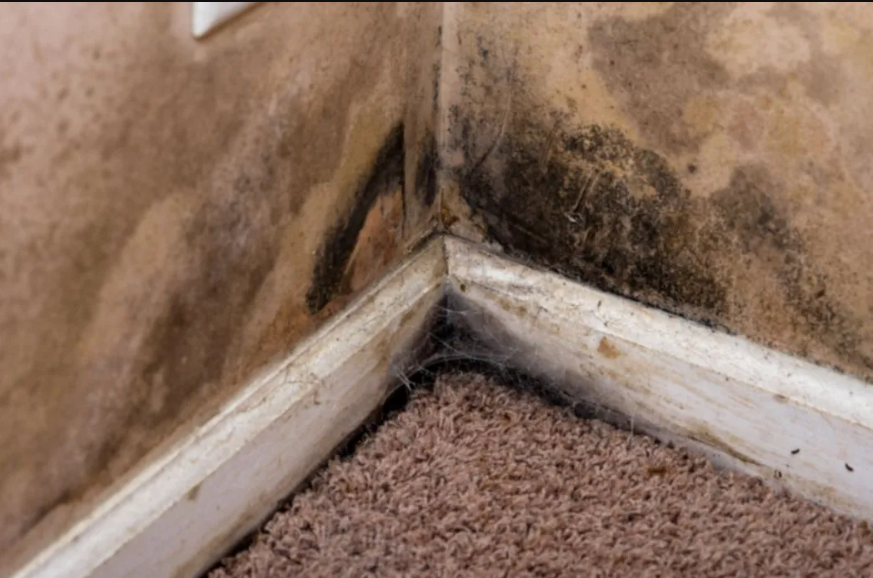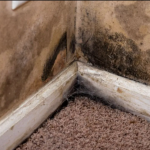Basement Moisture Check: Home and Health Protection
Your home’s basement may often be an overlooked space, but it plays a significant role in the overall health and integrity of your property. One of the most critical aspects of basement maintenance is checking for moisture. In this comprehensive article, we will explore the reasons why you should regularly inspect your basement for moisture. Understanding the importance of this practice is key to preventing a range of problems that can affect both your home and your health.
The Risks of Basement Moisture
1. Mold and Mildew Growth
Basement moisture is a breeding ground for mold and mildew, two types of fungi that thrive in damp environments. When left unchecked, mold and mildew can quickly infest your basement, posing several risks:
Health Concerns: Mold spores can become airborne, potentially leading to respiratory problems, allergies, and other health issues.
Structural Damage: Mold can eat away at building materials, weakening the structural integrity of your home over time.
Unpleasant Odors: Mold and mildew growth in your basement can create musty, unpleasant odors that can infiltrate other areas of your home.
2. Pest Infestations
Moisture in your basement can attract various pests, such as termites, ants, cockroaches, and rodents. These pests can create their nests in damp areas and cause a host of problems:
Structural Damage: Termites and carpenter ants can chew through wood and weaken the structure of your home.
Health Concerns: Pests can carry diseases and contaminate your living space.
Costly Extermination: Pest infestations often require professional pest control services, leading to unexpected expenses.
3. Water Damage
Basement moisture can result from water infiltration, which can lead to various forms of water damage, including:
- Foundation Cracks: Water pressure can cause cracks in your basement’s foundation, potentially jeopardizing your home’s structural stability.
- Floods: Heavy rains or plumbing failures can lead to basement floods, causing extensive damage to your belongings and property.
- Rot and Decay: Excess moisture can cause wood to rot and other building materials to deteriorate, necessitating costly repairs.
The Benefits of Regular Basement Moisture Checks
Now that we understand the risks of basement moisture, let’s explore the numerous benefits of conducting regular moisture checks in your basement.
1. Preventing Mold and Mildew Growth
Regular moisture checks enable you to catch dampness before it leads to mold and mildew problems. By addressing moisture issues promptly, you can:
Maintain Indoor Air Quality: Preventing mold and mildew growth helps maintain clean and healthy indoor air, benefiting your respiratory health.
Protect Your Property: By avoiding mold-related structural damage, you can save on costly repairs.
Eliminate Odors: Damp basements often produce unpleasant odors. Moisture checks can help prevent these odors from spreading.
2. Early Detection of Water Infiltration
Regular checks allow you to detect signs of water infiltration, such as damp spots, water stains, or efflorescence (white, powdery deposits), before they escalate into more severe problems:
Timely Repairs: Identifying the source of water infiltration and addressing it promptly can prevent structural issues and avoid costly repairs.
Protect Belongings: Detecting water issues early helps protect your belongings stored in the basement from damage.
3. Pest Control
Regular basement moisture checks can help you identify conditions that attract pests. By keeping your basement dry and free from moisture, you can:
Deter Pest Infestations: Maintaining a dry environment makes your basement less attractive to pests, reducing the likelihood of infestations.
Save on Pest Control Costs: Fewer pest problems mean fewer expenses on pest control services.
4. Reducing Health Risks
Basement moisture can lead to health risks due to mold, pests, and poor indoor air quality. Regular checks can help mitigate these risks:
Allergy and Asthma Prevention: By preventing mold growth and pest infestations, you can reduce allergens that trigger allergic reactions and asthma.
Respiratory Health: A dry and clean basement contributes to better indoor air quality, promoting respiratory health for you and your family.
How to Conduct Basement Moisture Checks
1. Visual Inspection
Start with a visual inspection of your basement. Look for the following signs of moisture:
- Wet spots on the floor or walls.
- Water stains on walls or ceilings.
- Efflorescence, which appears as white, powdery deposits on surfaces.
- Mold or mildew growth on walls or materials.
- Musty or unpleasant odors.
2. Humidity Levels
Monitoring the humidity in your basement is crucial. Use a hygrometer to measure the relative humidity, aiming for levels between 30% and 50%. Higher humidity can promote mold growth and other moisture-related problems.
3. Water Infiltration Sources
Identify potential sources of water infiltration, such as:
- Leaky pipes or plumbing.
- Foundation cracks or gaps.
- Poorly sealed windows and doors.
- Inadequate drainage around your home’s foundation.
4. Dehumidifiers and Ventilation
Consider using a dehumidifier to maintain the appropriate humidity level in your basement. Ensure that your basement is well-ventilated to allow moisture to escape and prevent stagnation.
5. Professional Inspection
If you’re uncertain about the condition of your basement or have identified moisture issues, it’s advisable to seek a professional inspection. A qualified inspector can identify the source of moisture problems and recommend appropriate solutions.
Addressing Basement Moisture Issues
If your moisture checks reveal problems, it’s essential to address them promptly to prevent further damage and protect your health. The specific measures you take will depend on the issues you identify:
1. Mold and Mildew Remediation
If you discover mold or mildew growth, it’s crucial to remove it safely. This typically involves:
- Wearing protective gear, including gloves and a mask.
- Isolating the affected area to prevent the spread of spores.
- Cleaning and disinfecting surfaces.
- Fixing the moisture issue that caused the growth in the first place.
2. Waterproofing Solutions
To address water infiltration, consider the following solutions:
- Repairing plumbing leaks or faulty pipes.
- Sealing foundation cracks and gaps.
- Improving drainage around your home’s foundation.
- Installing a sump pump to manage excess water and prevent floods.
3. Pest Control
To address pest infestations, you may need to:
- Identify the type of pest and their entry points.
- Seal off access points and eliminate nesting sites.
- Consider professional pest control services if necessary.
4. Dehumidification
To maintain proper humidity levels, install a dehumidifier in your basement. Regularly empty the dehumidifier’s water container and ensure it operates efficiently.
Regular Maintenance and Prevention
Preventing basement moisture issues is often more manageable than dealing with them after they’ve developed. Here are some preventative measures to consider:
1. Proper Grading and Drainage
Ensure that the ground around your home slopes away from the foundation, directing water away from the basement. Proper grading and drainage systems can help prevent water infiltration.
2. Gutters and Downspouts
Maintain your gutters and downspouts to ensure they channel rainwater away from your home’s foundation. Keep them clean and free from debris.
3. Foundation Waterproofing
Consider applying a waterproofing coating to your foundation to create a barrier against moisture infiltration. This can be especially helpful if your basement is prone to water issues.
4. Regular Maintenance Checks
Make basement moisture checks a regular part of your home maintenance routine. Conduct inspections at least once a season and after heavy rains to catch issues early.
Regularly checking for moisture in your basement is a crucial aspect of home maintenance that can protect your property and your health. By preventing mold and mildew growth, addressing water infiltration, deterring pests, and maintaining good indoor air quality, you can ensure a safe and comfortable living environment for you and your family. Conducting moisture checks, addressing issues promptly, and implementing preventive measures can save you time, money, and stress in the long run, making it a practice well worth your time and attention.
Contact the Professionals at Everdry Waterproofing Of Columbus Today! (614) 850-5600



















